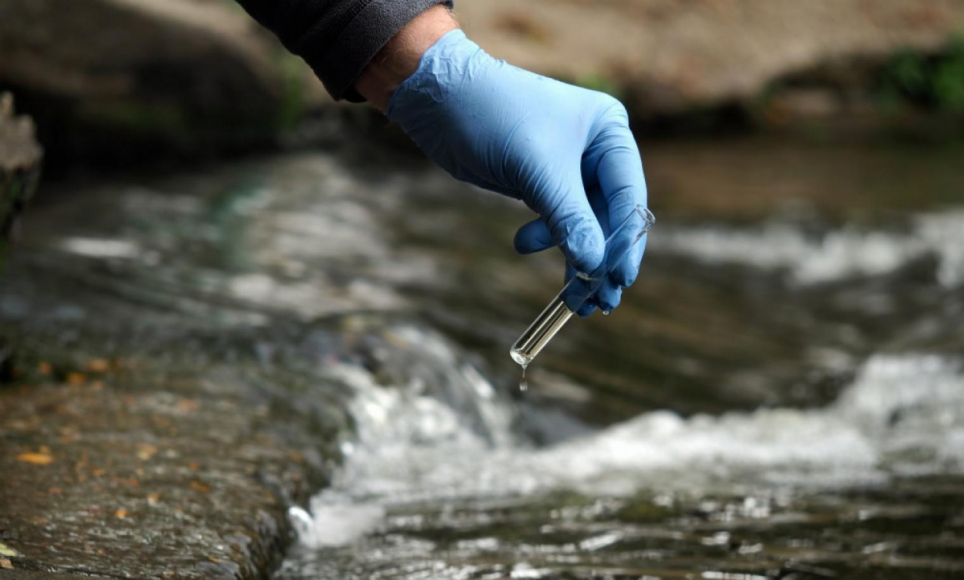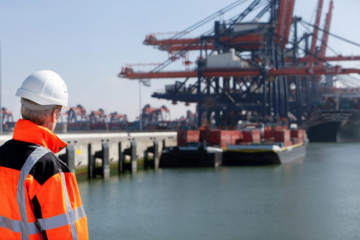Per and polyfluoroalkyl substances (PFAS) are appearing in drinking water across the United States. Since the EPA’s adoption of advisory drinking water levels for PFAS in 2016, it has re-emerged as a contaminant of concern at scores of sites across the country.
PFAS are man-made chemicals, once believed to be non-toxic, that are stable in the environment and water-soluble, meaning they can remain in groundwater or drinking water for a long time without breaking down. This is a massive issue for all the industries involved in their production and use—because water or other substances contaminated with PFAS have the ability to harm humans and animals in both the short- and long-term. While almost every industry is associated with PFAS, the industries with the most common occurrences of PFAS use are food and beverage, manufacturing, technology, and chemical.
Trusted Advisors
Since PFAS management has become such a pressing need for many local governments and companies, numerous firms, sometimes with little to no history of assessing for PFAS or related contaminants, have popped up claiming to solve contamination problems.
This spells trouble: PFAS assessments are highly technical and require a team of knowledgeable experts to analyze and interpret the results correctly. If done poorly, it can mean the difference between clean drinking water and contamination, with all its associated liability, cost, and business disruption. (Plus it always costs more to do something right the second time.)
Your best, safest, and most cost-effective bet is to leave PFAS to the professionals.
Real-World Experience
Antea Group has been doing on-the-ground PFAS work for our clients for decades. We’re on top of the ever changing state and federal regulatory changes on PFAS, and we are constantly working alongside industry experts and regulators to better understand and manage all aspects of PFAS.
Here are just a few examples of ways we’ve helped our clients with PFAS remediation, management, and litigation support over the years:
- A construction manufacturing facility in New York had a massive issue with PFAS contamination—buildings, tanks, infrastructure, and paved surfaces were contaminated after the use of aqueous firefighting foam (AFFF) to suppress a tank fire. To get them out of this tight spot, we developed a permanent remedial solution for management of this release that helped the facility resume full operations.
- For another client, we sampled water supplies for laboratory analyzes of PFAS contaminants for a group of state-wide public water systems over three years. Our highly-qualified and pre-trained group of sample teams, using specialized nitrogen systems, completed all sampling within the EPA-approved scheduled and within budget.
- We provided expert testimony regarding the fate and transport of PFAS in the groundwater for a client, going above and beyond to supporting their litigation using an innovative data management solution to trend 10 years’ worth of PFAS data to better represent our findings. The client was able to get the case settled in the morning of jury selection, avoiding trial.
- Last but definitely not least—we studied the PFAS profiles and environmental impacts of various aqueous film forming foam (AFFF) that is used in fighting fires. We worked with several municipal and private fire departments and training facilities to explore the different PFAS makeups in AFFFs and their varying effects on nearby environments.
Because PFAS has the ability to drastically alter human health and wellbeing, as well as business operations, our experts pride themselves on knowing their stuff, having proved it time and time again out in the field, where it counts the most.
Learn more about our PFAS management and remediation support or contact us today for more information.
Download PFAS Whitepaper
This whitepaper provides readers with an overview of the wide range of manufactured products that contain PFAS and highlights some of the latest regulatory requirements for sampling, investigation, and discovery of PFAS compounds.
Download HereWant more news and insights like this?
Sign up for our monthly e-newsletter, The New Leaf. Our goal is to keep you updated, educated and even a bit entertained as it relates to all things EHS and sustainability.
Get e-NewsletterHave any questions?
Contact us to discuss your environment, health, safety and sustainability needs today.




